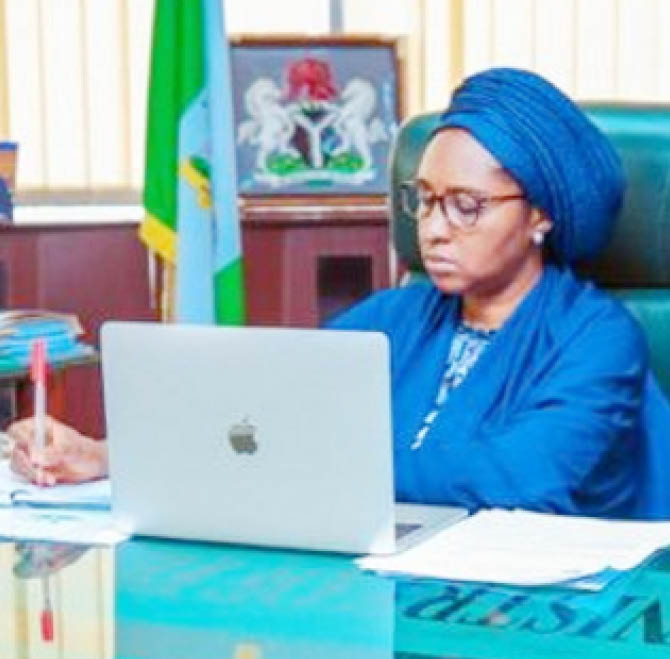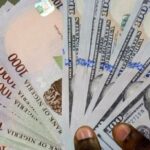The downgrade by Moody’s Investors Service of Nigeria’s long-term foreign currency and local-currency issuer ratings could raise the country’s cost of borrowing in the international capital market. It could also trigger further downgrades of the country’s creditworthiness by other rating agencies, analysts have said.
Moody’s on Friday announced a downgrade of Nigeria’s Nigerian long-term foreign-currency and local-currency issuer ratings as well as its foreign currency senior unsecured debt ratings, as well as its foreign currency senior unsecured debt ratings to Caa1 from B3, blaming it on the country’s low revenue and high debt profiles.
“What it means is that the health of the economy is not getting better. All this rating is about assessing how healthy an economy is. And if you are having a downgrade, it means that the economic conditions are not improving,” Dr. Muda Yusuf, Chief Executive Officer, the Centre for the Promotion of Private Enterprise, said in an interview with Daily Trust.
This is as Nigeria’s Eurobonds fell on Monday following the downgrade.
The fall in the price of the bonds has raised their yields, signaling investors’ demand for higher yields on the bonds, given the country’s perceived higher riskiness after the downgrade.
Leadership failure: NBA president apologise to Nigerians
Nigerians imported N1.8trn of US-used vehicles in 6 years
All the country’s 13 Eurobonds fell on the first trading day after the downgrade, with the bond due in September 2033 falling with a $3.25 loss to a yield (bid) of 11.86%, according to a market report seen by Daily Trust. The November 2049 bond lost $3.125 to a yield of 12.11%.
The bonds maturing in March 2029 and February 2047 lost by the same amount of $2.875, to yields (bid) of 11.84%, and 11.99%, respectively.
Even the $500m bond that matures in July this year fell by $0.375 to a yield of 8.67%. Some of the bonds had fallen by higher margins earlier in intraday trading.
Also affected where the country’s banks, with Access Bank’s September 2026 bond losing $3 to a yield of 10.15%. First Bank’s October 2025 bond lost $1.5 with a yield of 11.22%.
The massive fall in bond prices is “not a shock given what has happened,” says a bond analyst who prefers not to be named. “Anything triple C (referring to the Caa1 grade) is very bad. It is not a place to be. It will crush us. You don’t want to be there and Nigeria has entered there,” he said.
Moody’s also lowered Nigeria’s local currency (LC) and foreign currency (FC) country ceilings to B2 and Caa1 respectively, from B1 and B3 respectively. It noted that the LC country ceiling at B2 remains two notches above the sovereign issuer rating, incorporating some degree of unpredictability of government actions, political risk and reliance on a single revenue source.
It explained that the FC country ceiling at Caa1 remains two notches below the LC country ceiling, reflecting significant transfer and convertibility risks are given the track record of imposition of capital controls in times of low oil prices or falling oil production.
“This means that the risk of dealing with us as an economy is getting higher, especially credit risk. If for instance you want to borrow, or a corporate organization wants to borrow, the cost of credit will be higher because the economy has been downgraded. That means we are now a bigger credit risk. So, the cost of credit to either the sovereign or the corporates will be higher,” said Yusuf. “It also has a negative signaling effect to investors about us. So that is what this signals.”
The bond analyst warns that Nigeria could be on the path that led to the financial crisis in which Ghana has found itself now.
“This is how Moody’s first downgraded Ghana a year ago. It took 7 months before S&P and Fitch followed. I don’t see it taking that long for Nigeria,” he said.
Nigeria, Africa’s biggest oil producer, is having a challenge with a fiscal imbalance arising from dwindling oil revenue that has led to mounting deficits and a borrowing spree.
Nigeria’s debt currently stands at about N77trn, and Yusuf warns this could balloon further to N80trn by the end of the year. With a presidential election scheduled next month and a new administration taking over in May, he says there’s very little that could be expected to change in the state of the economy this year.
“I think we should be looking up to the incoming government. I don’t think anything dramatic can change. You can see that even the debt is going up. By the time we finish with this administration, our debt profile will be getting close to N80trn. We are already at N77trn. And what is the guarantee that they will meet up the revenue target projections they are making? If they don’t make up to that revenue that means the deficit will increase and borrowing will increase. Then that means the debt level will also increase,” the former Director-General of the Lagos Chamber of Commerce and Industry, said.
Moody’s said that fiscal pressure from falling oil production, the increasingly costly oil subsidy as well as rising interest rates will likely persist over the next couple of years, while a policy response post-election is likely to take some time to put Nigeria’s fiscal position on a more sustainable path.
“As a result, Moody’s expects that the scope to finance core spending to support the country’s social and economic development will remain constrained, with the service of debt increasingly coming at odds with other spending priorities. Under its baseline scenario, the rating agency projects that interest payments will consume about half of general government revenue over the medium term, up from an estimated share of 35% in 2022 and that general government debt-to-GDP will continue rising to about 45%, up from 34% in 2022 and 19% in 2019”.
To tackle the problems that led to the downgrade, Yusuf said the next administration must embark on a wide range of reforms to stabilize the economy and spur growth. These reforms should cover such sectors as the foreign exchange market, power, and oil and gas.
“I am sure the forex market will also be an issue. If you have an economy where foreign investors in your country cannot repatriate their money out, the airlines cannot take their money out, this could also contribute to that kind of downgrade,” he said in reference to the difficulties being faced by airlines operating in the country in their bid to repatriate their funds.
“If an investor comes in now and makes profit, to take out his money becomes an issue. So, the external sector is also an issue,” he said.
“These are the areas I think we need to work on in order to improve the rating. But generally, a downgrade is not good for our country’s risk and for the perception of our economy as an investment destination,” Yusuf said.

 Join Daily Trust WhatsApp Community For Quick Access To News and Happenings Around You.
Join Daily Trust WhatsApp Community For Quick Access To News and Happenings Around You.



